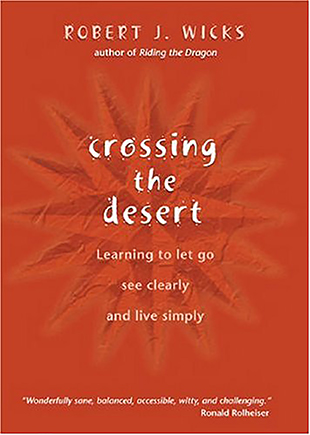"A few of the brothers came to see Abba Poemen. They said to him, 'Tell us what to do when we see brothers dozing during prayer. Should we pinch them to help them stay awake?'
"The elder said to them, 'Actually what I would do if I saw a brother sleeping is to put his head on my knees and let him rest.' "
This is one of our favorite stories from the Desert Fathers who always emphasized spiritual practice over all else: here kindness is given priority over the rule of criticism and discipline. Robert J. Wicks, a professor of psychology at Loyola College in Maryland and the author of over 40 books for professionals and the general public, regards the wisdom of these Christian Fathers and Mothers as a treasure trove of insights for those who are undergoing their own special desert experiences of stress, desolation, or loss. In this well thought-out and delivered volume, the author challenges us to become spiritual apprentices to these fourth-century seers.
The Desert Fathers and Mothers knew the key to inner freedom. Wicks discusses their practice of humility and the art of letting go. He also explores the four types of friends that can assist us on this journey and the value of gratefulness as a virtue that enables us to walk in the dark and not be afraid. The sayings of the Desert Fathers and Mothers enable us to ponder the four central questions that come up during the journey to inner freedom: (1) What am I filled with now? (2) What prevents me from letting go? (3) How do I empty myself? and (4) What will satisfy me yet leave me open to more? The last chapter examines three necessary steps which must be taken on the quest for inner freedom.
Wicks maintains that these early Christians appreciated their own ordinariness and as a result were able to realize intuitively what theologians call "the divinization of the human person." This single-mindedness, purity of heart, and peace enabled them to handle any difficulties or dark nights of the soul.
Wicks believes that the art of letting go is very relevant to our modern insecurities and attachments. We agree, and this erudite little work offers much food for thought.
